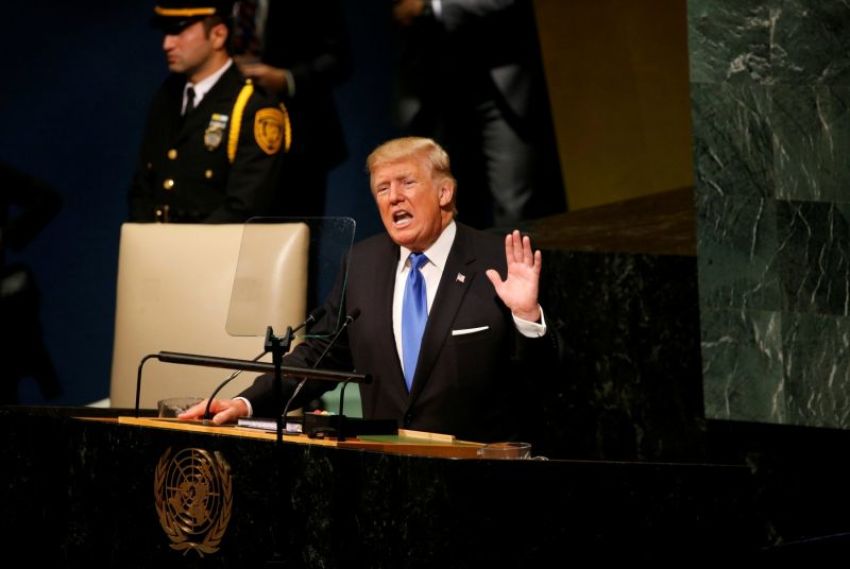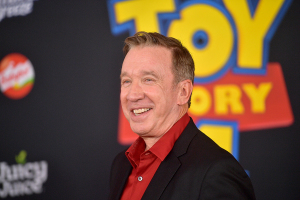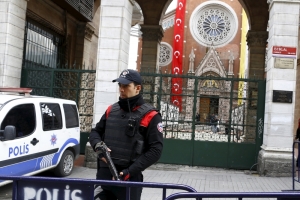Trump to give 'historic' religious freedom speech at United Nations; evangelical leaders invited

The White House announced that President Donald Trump will give a speech on religious freedom next Monday at the United Nations headquarters in New York City and will host a special event to be attended by evangelical leaders and religious freedom advocates.
“The President is working to broaden international support for ongoing efforts to protect religious freedom in the wake of increasing persecution of people on the basis of their beliefs and a growing number of attacks on and destruction of houses of worship by state and non-state actors,” a statement from White House Press Secretary Stephanie Grisham reads.
“The President will call on the international community to take concrete steps to prevent attacks against people on the basis of their religion or beliefs and to ensure the sanctity of houses of worship and all public spaces for all faiths.”
The Monday morning event is titled “Global Call to Protect Religious Freedom.”
Johnnie Moore, a commissioner on the U.S. Commission on International Religious Freedom and an evangelical leader who has informally engaged with the Trump administration, told The Christian Post that many have been invited to take part in the event.
Among those invited are conservative evangelical leaders who have participated in events at the White House, USCIRF commissioners, religious freedom activists, other religious leaders and a host of others.
Moore called next Monday’s event “legitimately historic.”
“The President of the United States has decided to set his own agenda for the United Nations General Assembly and that agenda will involve the most sweeping, focused statement on religious freedom ever delivered by any President of the United States to the United Nations,” Moore wrote in an email.
Trump will be introduced for his speech by Vice President Mike Pence. The event will also be attended by senior administration officials, according to Moore.
The event comes just over two months after the U.S. State Department hosted its second Ministerial to Advance Religious Freedom in Washington, D.C. last month, a three-day event that was attended by hundreds of religious freedom activists, survivors of persecution, religious leaders and world political leaders.
“Simply put, the President is using the full weight of the United States to force the issue of religious freedom on the agendas of world leaders of the United Nations,” Moore stated. “It is not a secondary issue to the United States. It is an organizing principle for the United States and ought to be for all global leaders.”
Since Trump took office in 2017, his administration has placed much emphasis on protecting the religious freedom rights domestically and internationally.
Internationally, the Trump administration bolstered aid initiatives to help persecuted religious minorities in Iraq and Syria resettle after being displaced by the Islamic State.
Also, the Trump administration pressured for the release of pastor Andrew Brunson, who was imprisoned in Turkey for two years, and the release of three Christian prisoners in North Korea.
The administration has also called out China for its abuses of various faith communities including Christians, Uighur Muslims, Tibetan Buddhists, Falun Gong, and others.
At the first two State Department Ministerials to Advance Religious Freedom, the Trump State Department has issued several statements of concern blasting blasphemy laws, abuses in China, and atrocities in Myanmar. Other statements of concern call for the protection of places of worship, and for respect for freedom of religion or belief.
The administration capped off it's first State Department ministerial in July 2018 by issuing the Potomac Declaration declaring that religious freedom is a “God-given right.”
In July, Trump met with a group of nearly 30 survivors of religious persecution at the Oval Office, where he heard stories of how they or their family members of have faced severe religious persecution.
“Each of us has the right to follow the dictates of our conscience and the demands of our religious conviction. We know that if people are not free to practice their faith, then all of the freedoms are at risk and, frankly, freedoms don’t mean very much,” Trump said during the meeting.
“That’s why Americans will never tire in our effort to defend and promote religious freedom. I don’t think any President has taken it as seriously as me. To me, it’s very important. It’s vital. It’s really vital.”
Despite the emphasis the Trump administration places on religious freedom, some advocates have criticized his administration’s stance when it comes to refugee resettlement and asylum.
During his first two-plus years in office, the Trump administration has capped the U.S. refugee resettlement program at historically low levels.
Earlier this year, a report indicated that the administration was considering a proposal to “zero out” the refugee resettlement program or further reduce the annual cap on refugees allowed to be resettled to the country.
Further reduction in the refugee program would come as the United Nations estimates that over 1.4 million refugees will be in need of resettlement in 2020.
Religious freedom advocates are calling for the Trump administration to raise the refugee cap.
Tony Perkins, a USCIRF commissioner and social conservative activist who has been supportive of some of the administration’s policies, voiced an alarm earlier this month about the administration's plan to reduce the refugee limit for the fiscal year 2020.
Although the Trump administration has placed much emphasis on helping persecuted minorities resettle into lands they had been kicked out of, critics say that the need to resettle refugees who can’t return to their homelands can’t be overlooked.
At a panel event earlier this year, Elizabeth Cassidy, director of international law and policy for the U.S. Commission on International Religious Freedom, said that boosting humanitarian aid is not a “substitute” for refugee resettlement because many refugees have relocated to host countries where they are also persecuted for their faith.
Follow Samuel Smith on Twitter: @IamSamSmith
or Facebook: SamuelSmithCP



























